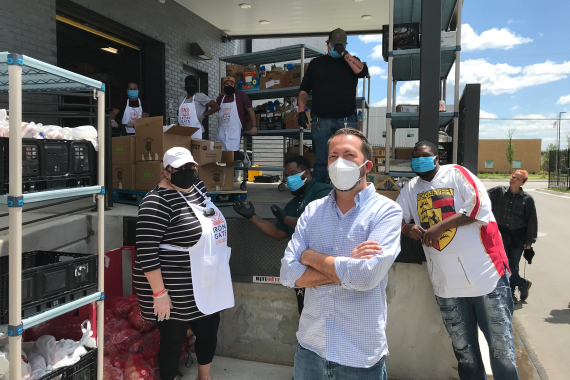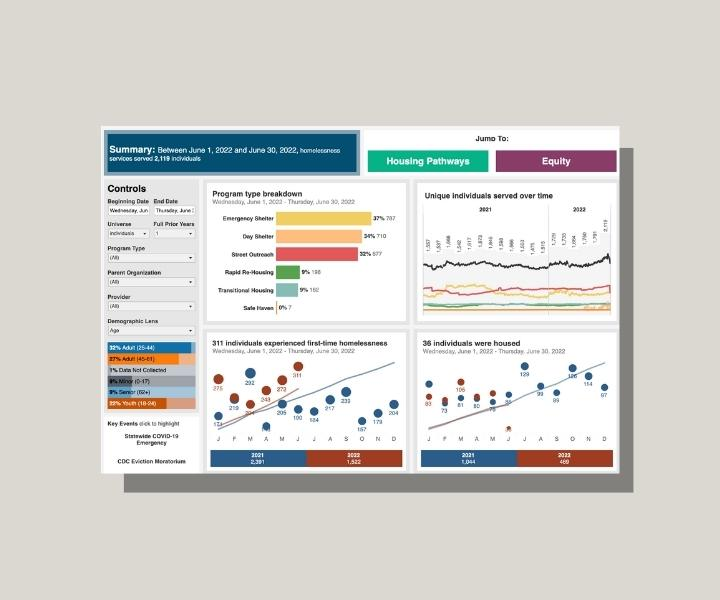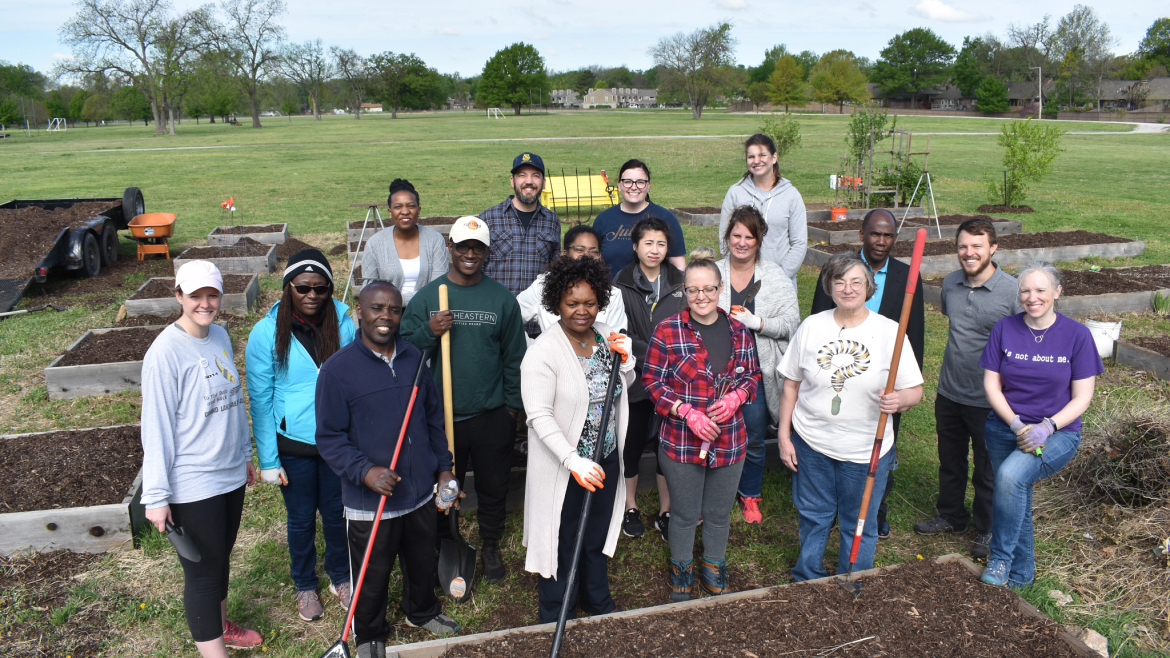All families should be able to meet their basic needs and be part of a thriving community.
Tulsa’s long history of exclusionary policies laid the groundwork for the city’s current reality: Tulsans experience vastly different qualities of life depending on their race and neighborhood.
Nearly half of Tulsa’s Black population and increasing numbers of immigrants live in north Tulsa. Compared with residents of south Tulsa—who are predominantly white—residents of north Tulsa are significantly more likely to lack stable, affordable housing, access to nutritious food, resources for healthy child-parent relationships, or the capital to launch successful businesses.
Overcoming these challenges so that all families and communities can thrive requires expanding community infrastructure in areas of the city that have historically suffered due to inadequate investment. That is why we invest in organizations that provide Tulsa’s families and young people with access to basic needs, essential social services and economic opportunities.
Through this work, we aim to invest in the well-being of all residents in Tulsa and support Black-led and community-led initiatives that make it possible for communities of color to build the necessary wealth and power to fuel their success.
11th
Highest eviction rate among U.S. cities. (Source)
3 in 4
North Tulsa residents live in a food desert. No residents of south Tulsa live in a food desert. (Source)
1 in 15
Children in Tulsa County are involved in a child abuse investigation. (Source)
> 850
Afghan immigrants were welcomed to Tulsa and settled into permanent homes in 2022. (Source)
Our Approach
We work with partners who center the voices and experiences of families and historically marginalized communities to help address their most urgent needs and build power and wealth.
Expanding access to quality, affordable housing
We back efforts to reduce evictions, expand affordable housing and increase access to housing-related resources. We also advocate for policies to protect tenants and invest in initiatives that assist first-time homebuyers—particularly Black Tulsans.
Alleviating hunger
We partner with organizations tackling food insecurity by reducing food deserts, increasing participation in the supplemental nutritional assistance program (SNAP) and advocating for public funding to support low-income households.
Protecting and supporting immigrants
We help organizations and activists pursue opportunities that provide legal resources to immigrants, protect undocumented families and assist refugee resettlement.
Amplifying community organizers
We support Latino immigrants and Black leaders organizing their communities and using their lived experiences to shape and advance the changes they want to see.
Our Grantees
We partner with a range of organizations and initiatives to ensure all families and communities in Tulsa are set up for success.
View more grantees in our Tulsa Grantmaking portfolio
Supporting Women in the Criminal Justice System
Family & Children’s Services’ Women in Recovery (WIR) program is a prison alternative program assisting participants with access to resources such as legal support, parenting skills, potential employers, substance abuse treatment and therapy.

Ending Hunger for Families
Hunger Free Oklahoma provides access to food for families in need, promotes the Double Up Food Bucks initiative and increases participation among families and children in the federally funded SNAP and child nutrition programs.

FEATURED GRANTEE RESOURCE
Staying Informed on Homelessness in Tulsa
Housing Solutions serves as a hub for up-to-date information on the state of homelessness in Tulsa, sharing both monthly and yearly dashboards with the most recent data on homelessness throughout the city.
By making this data widely accessible, community partners are better equipped to support Tulsans experiencing homelessness and work toward a future where homelessness in Tulsa is rare, brief and non-recurring.


